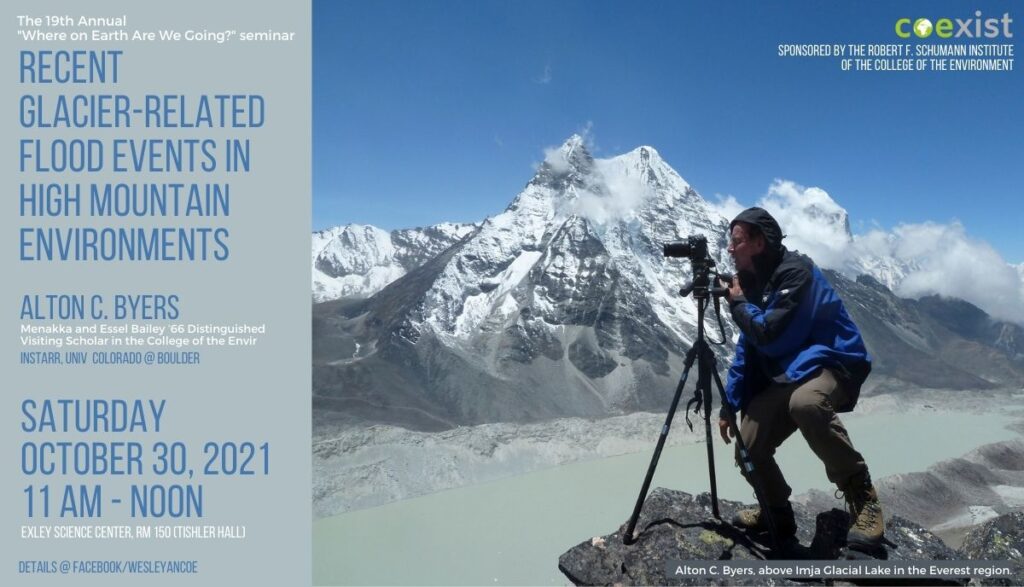The development of glacial lakes from receding glaciers, contained by either terminal moraines or bedrock, is commonly linked with global warming trends that have occurred since the end of the Little Ice Age (LIA). Such lakes are prone to sudden and catastrophic drainage, popularly known as glacial lake outburst floods (GLOF). Although GLOFs continue to dominate the focus of both peer reviewed and popular media articles alike, a range of other cryospheric processes and hazards exist that are in need of further research attention and mitigation technologies.
Join Alton C. Byers, PhD, the 2021-22 Menakka and Essel Bailey ’66 Distinguished Visiting Scholar in the College of the Environment and a member of our 2021-22 COE Think Tank, for Recent Glacier-Related Flood Events in High Mountain Environments, a multimedia discussion of englacial conduit floods, periodic and recurrent flooding of lakes created by glacier- or ice-dammed lakes, permafrost-linked rockfall and debris flows, and earthquake-linked glacier floods. This event is the latest in the COE’s annual Where on Earth Are We Going? seminar series, sponsored by the Robert F. Schumann Institute of the College of the Environment. The event is a direct tie-in with this year’s COE Think Tank theme of visualizing environmental change. The event takes place Saturday, October 30, 2021, from 11 am to noon at Exley Science Center (Room 150) on the Wesleyan Campus.
Alton C. Byers, Ph.D. is a mountain geographer, conservationist, and mountaineer specializing in applied research, high-altitude ecosystems, climate change, glacier hazards, and integrated conservation and development programs. He is a senior research affiliate at the Institute for Arctic and Alpine Research (INSTAAR) at the University of Colorado at Boulder.
Learn more about current and past COE Think Tank themes and fellows!
